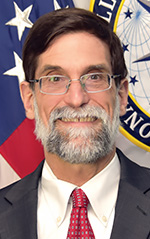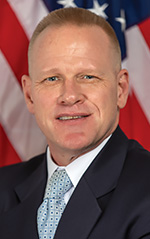How Will You Lead?
Speaking Out
BY TODD KUSHNER AND PAUL WATZLAVICK
Speaking Out is the Journal’s opinion forum, a place for lively discussion of issues affecting the U.S. Foreign Service and American diplomacy. The views expressed are those of the author; their publication here does not imply endorsement by the American Foreign Service Association. Responses are welcome; send them to journal@afsa.org.
What’s your leadership philosophy?
If you haven’t given this much thought, you should. People who decide your onward assignments care about how you will approach leadership—your values and beliefs—especially if you are vying for a supervisory position. They know nothing has more impact on a unit’s effectiveness and morale than the quality of its leaders.
Despite the value of knowing yourself as a leader, as Carol Walker wrote in the September 2015 Harvard Business Review, “Most managers live in a reactive mode, responding to issues based on gut feelings, past experiences, and examples set by others.”
Developing and articulating a leadership philosophy is a valuable mechanism for moving out of the reactive mode and leading instead from a basis of self-awareness. Many people do not undertake this exercise until they are in a senior position, if ever.
We have found at National Intelligence University (NIU) that it is very important to write out your leadership philosophy and reflect on it, even if you are early in your career. If possible, share your philosophy with people you trust and accept their feedback. It is natural that over time, your approach to leadership will change as you grow and develop.
Crafting Your Philosophy
In our leadership and management class, students draft their leadership philosophy as a class assignment. They then get feedback from their classmates and their instructor and submit a revision. Most students, in their course assessments, tell us that crafting and revising their leadership philosophies was extremely valuable.
One student from the State Department said this exercise forced him to look closely at his previous actions as a leader in the department and finally engage in critical self-introspection about beliefs, principles, and values that had guided him. Articulating his leadership philosophy resulted in important insights that will shape how he approaches future leadership positions.
At any career stage, or at any instance when tension and stakes are high, a leadership philosophy can be a tool for self-feedback.
Another State Department student related that crafting a personal leadership philosophy was valuable in helping to identify personal core principles and succinctly communicate them to her team. She added that exposure to feedback from students from other agencies helped to give her a broader perspective.
Crafting a leadership philosophy with the intention of articulating expectations to a unit can be powerful. As Adam Bryant wrote in the July 14, 2021, Strategy and Business: “Providing clarity about your leadership style will help you to build trust with your team. Think of it as your personal leadership brand—what you stand for, including the values that guide your behaviors as a leader, and what you expect from others.”
A leadership philosophy can even be valuable if it is private. Some students write the philosophy primarily for themselves, as a document they can reference when challenges arise and they need a reminder of their core values and key experiences.
Questions to Ask
The higher people rise in the ranks of an organization, the less constructive feedback they receive, even though they need this feedback just as much as their lower-ranked colleagues, Robert S. Kaplan noted in his 2007 Harvard Business Review piece, “What to Ask the Man in the Mirror.”
At any career stage, or at any instance when tension and stakes are high, a leadership philosophy can be a tool for self-feedback: The values you wrote down in a quiet moment as a mid-level officer still hold true. But a reminder is a good thing. At NIU, we ask students to recall how they have lived their values in the past. This reflection helps students continue to live those values.
Bryant recommends those articulating their leadership philosophies reflect on the following:
- What are the three values that are most important to you as a leader and a colleague—that is, the consistent behaviors that everyone can rely on from you?
- How have you lived those values in your career?
- Why are they important to you for driving success?
- If you were recruiting someone to join your team, what would you say to them about your leadership approach and philosophy?
In our classes, we tell students to ask themselves the following questions:
- What significant events have shaped you?
- What are your beliefs about people and outlook on life?
- What core values describe and guide who you are as a leader?
- What traits, characteristics, skills, styles, motivation, goals, etc., do you bring to leadership that makes you effective?
- What is important for groups to be effective?
- What is your preferred communication style (both in the way that you like to communicate and in the way you want others to communicate with you)?
- What are your expectations for yourself and others?
- What is your role in developing others?
- How do you want to be remembered?
Leadership Styles
Whether you realize it or not, you probably have a preferred leadership style. Recognizing this can be an important aspect of your philosophy. Daniel Goleman laid out six leadership styles into which people’s leadership behaviors commonly fit.
Coercive: Issuing orders and expecting compliance
Pacesetting: Setting and living out high performance standards for oneself and expecting employees to live up to those standards
Authoritative: Setting a compelling vision for the organization and its goals and motivating employees by making clear how their work contributes to this vision
Democratic: Making decisions by developing consensus within the unit
Affiliative: Building emotional ties within the unit that takes precedence over achieving goals
Coaching: Seeking alignment of employees’ professional goals with the objectives and mission of the unit
Each of these styles is valid and appropriate in certain situations. An affiliative style, for example, can work well in a unit when employees are motivated experts. Using the same style in a less experienced unit where employees need more direction may hamper goal achievement.
A pacesetting style can produce tremendous results in a unit where all the employees are capable, hard chargers. Being a pacesetter in a unit with less-motivated employees is a recipe for burnout.
How you decide to employ your leadership philosophy depends on a variety of factors. One option is trying to calibrate your onward assignment so that your preferred leadership philosophy matches the personality of the unit you hope to lead. Alternatively, perhaps you are emotionally versatile enough to lead in a style that is not your preferred style. These are important situations that will be influenced by your leadership philosophy as you move into positions of greater responsibility.
Employing Your Philosophy
The most important element of the philosophy is to make it personal and unique to you. Authenticity is essential, or it will ring hollow to others. A philosophy heavy in buzzwords or prone to reproducing corporate values has the potential to alienate your audience—and make you seem insincere, as well.
Instead of delivering platitudes, use the philosophy to tell stories about how the values you espouse in your philosophy reflect your life. As management scholars Herminia Ibarra and Kent Lineback wrote in the January 2005 Harvard Business Review: “Telling a compelling story to coworkers, bosses, friends, or family—or strangers in a conference room—inspires belief in our motives, character, and capacity to reach the goals we’ve set.”
We hear moving stories from students about the importance of treating employees with dignity and respect, often citing experiences with former supervisors who, by refusing to do so, created performance and morale issues. Students have talked about becoming servant leaders during the height of the COVID-19 pandemic to ensure their team knew they were appreciated; the team often rewarded them in demonstrating renewed commitment.
Other students have related the importance of treating everyone in the workplace fairly. They have shared many stories emphasizing their commitment to public service and of holding other employees to the same commitment. Students have emphasized workplace flexibility and the importance of trust and good communication. Many have provided personal examples about how their leadership values were shaped and nurtured by their parents and mentors.
Foreign Service personnel regularly find themselves in new surroundings with new teams where they have the opportunity to clearly articulate their leadership philosophies. Having one ready that paints an honest picture of what new colleagues may expect can set a positive tone that promotes greater camaraderie and productivity within the group.
Seeing State Department students using their leadership and management coursework experiences at NIU to prepare themselves for future roles has confirmed our view that the university is an excellent choice for mid-career professional development, and we encourage those interested to pursue this unique opportunity.
When sharing or linking to FSJ articles online, which we welcome and encourage, please be sure to cite the magazine (The Foreign Service Journal) and the month and year of publication. Please check the permissions page for further details.
Read More...
- “The Human Touch” by Angie Bryan, State VP Voice column, The Foreign Service Journal, October 2016
- “Owning Leadership” by Michael Pelletier, The Foreign Service Journal, November 2017
- “Radically Simple Ideas for a Better State: Foreign Service 2.0” by JC Windham, The Foreign Service Journal, November 2018







